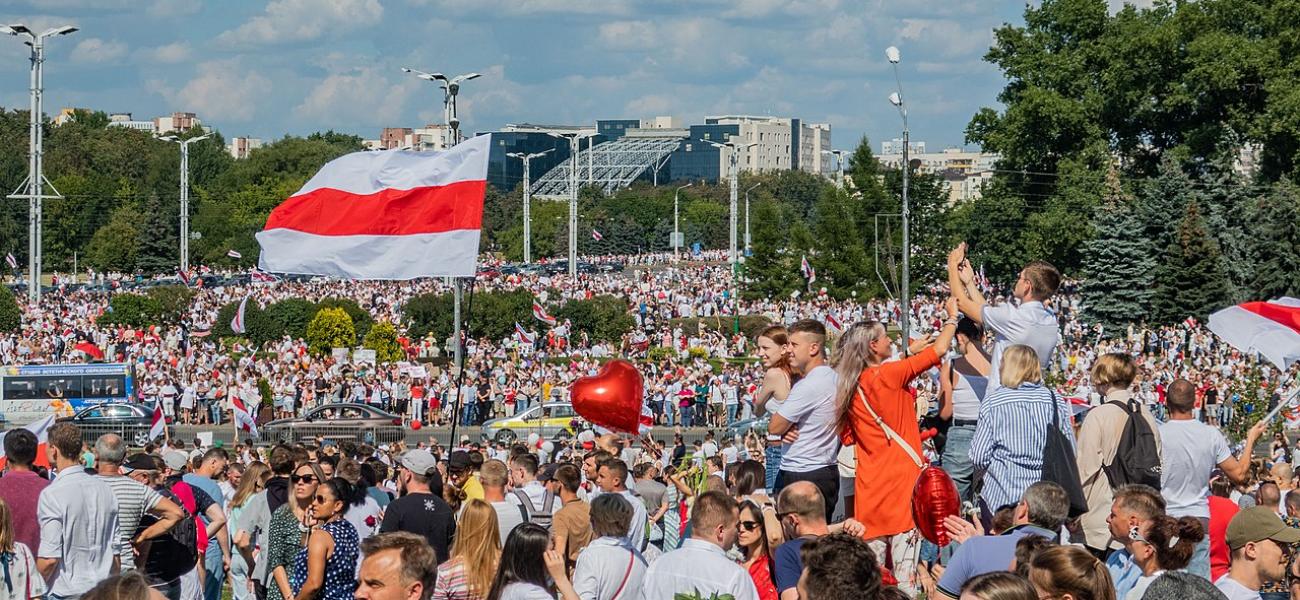In the Thick of It
A blog on the U.S.-Russia relationship
Will Russia Intervene Militarily in Belarus?
When Kyrgyz President Kurmanbek Bakiyev pleaded with Russian President Vladimir Putin in 2010 to have either Russia or the Russian-led Collective Security Treaty Organization intervene to nip a color revolution against him in the bud, the Kremlin ignored that plea. However, when Belarusian leader Alexander Lukashenko made similar pleas this week, Putin first apparently promised “comprehensive security assistance,” according to Lukashenko, and then stated “preparedness to render necessary assistance in resolving the emerged problems on the basis of the treaty on establishment of the Union State, and, if needed via the Collective Treaty Organization,” noting “external pressure” on Minsk.
These statements have led a number of Russia-watchers to proclaim Russia’s military intervention in Belarus is imminent or even underway. But is it?
To answer this question, I suggest exploring whether two conditions, which I have earlier identified as necessary and sufficient for Russia’s military intervention, are present in the case of Belarus. I identified those conditions to explain why Putin’s Russia did not intervene during the color revolutions in Ukraine in 2008 and in Kyrgyzstan in 2005 and 2010, but did so during the revolution in Ukraine in 2014 and in Syria in 2015. I also used this approach to predict that Putin would not intervene in Armenia when pro-Russian leader Serzh Sargsyan was being ousted from power in 2018, even though Russia had plenty of troops on the ground to do so.
First (Condition 1), Putin has to see either an acute threat to Russia’s vital national interests that he thinks can be neutralized or at least tamed by means of military intervention (or opportunities to advance those interests). The situation in Ukraine in 2014 generated serious concern in the Kremlin that one of Russia’s post-Soviet neighbors may “escape” to what Russia sees as a hostile alliance whose expansion eastward needed to be stopped per what Putin sees as a vital interest. The situation in Syria also threatened key Russian interests, as seen by the Russian leadership, in several ways, including an attack on an ally or client and the possibility that some of jihadists may then turn their gaze toward Russia upon prevailing over Syrian President Bashar al-Assad. This first condition was absent during the revolutions in Kyrgyzstan of 2005 and 2010 and in Armenia of 2018 because the revolutionaries in these countries were careful to affirm their intention to remain in Russian-led integration projects rather than try to take their countries elsewhere geopolitically.
The second condition (and my thinking is still evolving on this) for Putin’s Russia to use overt or covert military force against another country or in that country is that Moscow needs to have reasonable hope that, of all potential methods for responding to threats to vital national interests, a military intervention would yield the largest net reduction in the threats to Russia’s vital interests.
Condition 1 is currently absent in Belarus as of Aug. 17. The opposition leaders have so far espoused no public desire to take Belarus into NATO. Nor is the opposition (as of Aug. 17) close to toppling Lukashenko, though signs reportedly emerged on Aug. 17 that Europe’s last dictator may eventually agree to yield power.
Whether Condition 2 is present in Belarus as of Aug. 17 is unclear. On one hand, Russian power agencies have mobile units that can easily and rapidly be deployed in response to Lukashenko’s pleas for help and, as long as Lukashenko remains in power, that can be framed as assistance to the countries’ authorities. On the other hand, Putin knows he has other, less costly, but relatively effective ways to ensure Belarus remains oriented toward Russia that can be tried before he orders a large-scale covert or overt military intervention. That is as of Aug. 17. Should, however, (1) the leaders of Belarus’s opposition be found to have been harboring serious intentions to take Belarus to NATO; and (2) they come close to toppling Lukashenko rather than negotiating a transition of power, in the outcome of which Russia would hope to play a role, expect Putin to give serious consideration to a full-fledged military intervention.
This is an updated and expanded version of an Aug. 16 post on Simon Saradzhyan’s personal blog.
Simon Saradzhyan is the founding director of Russia Matters. The opinions expressed in this commentary are solely those of the author.
Photo by Homoatrox shared under a CC BY-SA 3.0 license.
